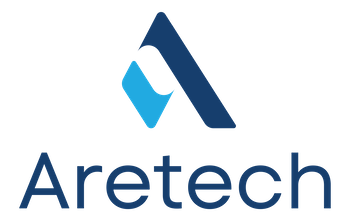Articles
January 2023
Effects of dynamic body weight support on functional independence measures in acute ischemic stroke: a retrospective cohort study
January 2022
Pilot Study: ZeroG TRiP Improves Balance in Patients with Acute Stroke
May 2020
Research: Effect of ZeroG on FIM in Traumatic Brain Injury
April 2020
Research: Effect of ZeroG on FIM in Acute Ischemic Stroke
March 2020
Case Study: Community Hospital sees immediate impact with ZeroG
August 2017
Case Study: Cincinnati Children’s uses ZeroG with a pediatric patient with a brain injury
March 2017
Case Study: Brookside Healthcare & Rehab gets patients back on their feet with ZeroG
October 2016
Case Study: Marianjoy Rehab Hospital leads the way with new Neuro rehab center
August 2016
St. John Hospital uses the ZeroG-Lite BWS Treadmill with error augmentation techniques
July 2016
Good Shepherd Rehabilitation uses ZeroG with a 12 year old girl with cerebral palsy
October 2015
Case Study: Faster recovery time with the ZeroG Gait and Balance System at Evergreen Rehab
June 2015
Baton Rouge Rehab uses ZeroG to put patient safety first
September 2014
Burke Rehabilitation Center uses ZeroG-Lite to get their patients up and moving
February 2014
Sinai Hospital is pushing the limits of stroke rehab with ZeroG
January 2014
Sheltering Arms Discusses their iWalk program, and how ZeroG is the most widely used device in their clinic
June 2013
Physical Therapists explain how ZeroG is their “Extra Set of Hands”
May 2010
Physical Therapists discuss the development of ZeroG at National Rehabilitation Hospital
Journal Papers
- Impact of motor therapy with dynamic body-weight support on Functional Independence Measures in traumatic brain injury: An exploratory study (More)
- Long-term training with a brain-machine interface-based gait protocol induces partial neurological recovery in paraplegic patients (More)
- The feasibility of a brain-computer interface functional electrical stimulation system for the restoration of overground walking after paraplegia (More)
- Muscle activation during body weight-supported locomotion while using the ZeroG (More)
- Brain-computer interface driven functional electrical stimulation system for overground walking in spinal cord injury participant (More)
- Metabolic demand and muscle activation during different forms of bodyweight supported
locomotion in men with incomplete SCI (More) - ZeroG: overground gait and balance training system (More)
- Feasibility and preliminary effectiveness of a novel mobility training intervention in infants and toddlers with cerebral palsy (More)
- Editorial on the future of rehabilitation robotics (More)
Book Chapters
Hidler J, Stienen A, and Vallery H. (2016). Robotic Devices for Overground Gait and Balance Training. Neurorehabilitation Technology, Second Edition (chapter 23), Edited by V. Dietz, and D. Reinkensmeyer, Springer.
Hidler J and Brown D. (2012). Robotic devices for overground gait and balance training. Neurorehabilitation Technology (chapter 22), Edited by V. Dietz, Z. Rymer and T. Nef, Springer.
Hidler J, Rozaieski M, Koehler S, Ellis C, Fletcher P, Frankoff D, and Hendricks J (2009). Technology and Stroke. Managing Stroke: A Guide to Living Well after Stroke 2nd Edition, NRH Publications.
Refereed Conference Proceedings
Nef T, Brennan D, Black i, Hidler J (2009). Patient-tracking for an Over-ground Gait Training System. IEEE 11th International Conference on Rehabilitation Robotics ICORR, Kyoto, Japan, June 23-26.
Abstracts
Ness D. Dynamic Over-ground Body Weight Support Training in Patients with Pusher Syndrome after Stroke: Case series. APTA Combined Sections Meeting, February 2014.
Brady K, Black i, Brennan D, and Hidler J. ZeroG: Dynamic over-ground body-weight support system. APTA Combined Sections Meeting, February 2008.
Hidler J, Black i, and Brennan D. ZeroG: Dynamic Over-Ground Gait Training System. American Spinal Injury Association (ASIA) Annual Meeting, Tampa, FL, June 2007.

